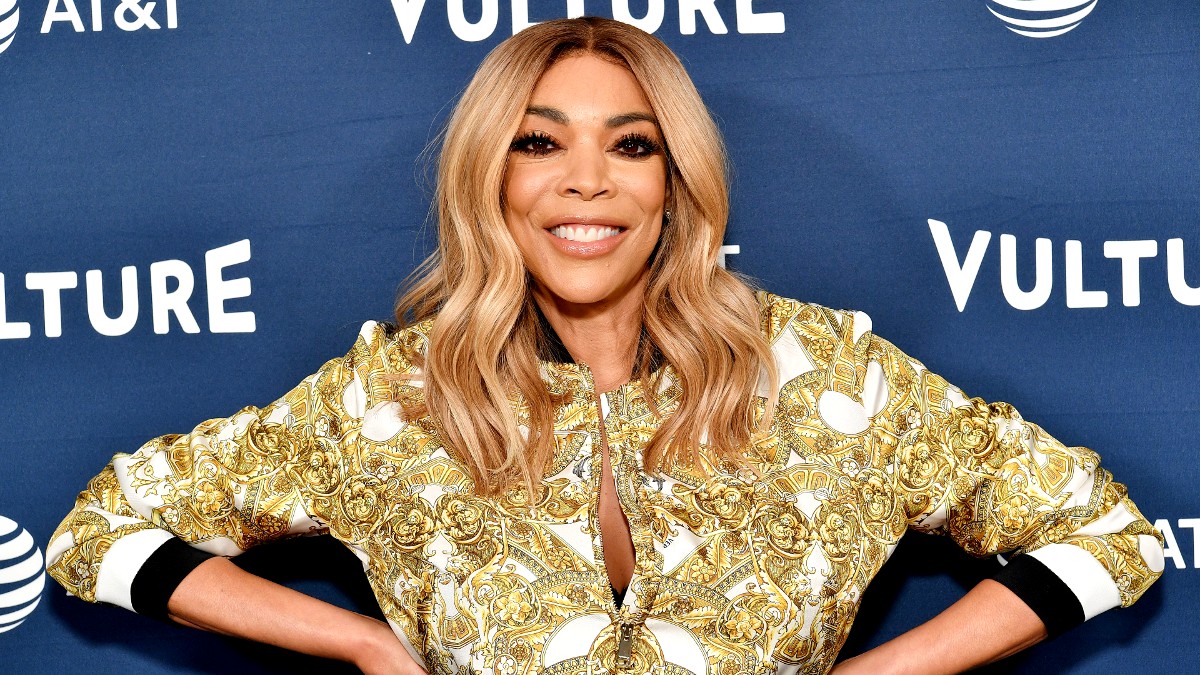Why Was ‘Where Is Wendy Williams’ Released After Her Diagnosis?

Where Is Wendy Williams? follows the life of media personality and broadcaster Wendy Williams after she disappears from the public eye. However, the docuseries shouldn’t have aired after Williams’ aphasia and frontotemporal dementia diagnosis were made public.
Williams is best known for her syndicated talk show, The Wendy Williams Show, which she hosted for 14 years (2008-2021) across 13 seasons. Throughout her broadcasting career, she was inducted into the National Radio Hall of Fame and is considered one of the most legendary radio hosts ever with her unique talent for storytelling, gossip, and controversy. In addition to her broadcasting career, she launched a clothing line, wrote multiple books, and created the non-profit The Hunter Foundation to help provide resources for those recovering from substance abuse.
Unfortunately, Williams began struggling with health issues in 2017. After multiple hiatuses, her show was ultimately canceled in 2022. At this point, Williams largely ducked out of the spotlight, and concern for her health grew as reports arose that her bank accounts were frozen and she was appointed a temporary financial guardianship. Although she hinted at a new podcast or another TV show, neither project came through. Naturally, viewers were initially excited for Where Is Wendy Williams? to finally explain what the host has been up to during her retreat from public life. However, the docuseries takes an exploitative turn that leaves viewers questioning why it was ever released in the first place.
Why Where Is Wendy Williams? never should have aired
When Where Is Wendy Williams? first started filming, it was supposed to follow the broadcaster’s career comeback as she teased the release of a new podcast, The Wendy Experience. Although Williams created a website and Instagram account for the podcast, it never got off the ground. As a result, producers eventually settled on a different topic: Williams’ health. During filming, producers became concerned about Williams’ erratic behavior, substance abuse, fractured relationship with her son, and moments where she appeared confused and belligerent. Instead of walking away from the project, the documentary changed direction and became an intimate look into her struggles and her family’s concern about her.
The producers emphasized that they received permission from Williams and her family for what they filmed. However, everything changed when the producers learned that Williams was diagnosed with aphasia and frontotemporal dementia last year. For the majority of production, the crew alleged they had no idea about her diagnosis. Additionally, executive producer Erica Hanson revealed that they immediately became uncomfortable filming upon realizing “that she really needed help.” Filming stopped and producer Mark Ford went as far as to say that the documentary never would’ve been filmed if they had known about her diagnosis beforehand.
The production crew has made it very clear that they understood how Williams’ diagnosis changed things. They had filmed an entire series showing Williams at her lowest point, gathering heartbreaking footage of her declining health, alcohol struggles, confusion, and high emotions, as well as “tell-all” interviews with family members detailing their numerous concerns about her. Since her dementia is only mentioned one time, Williams’ struggles are not shown through an understanding and compassionate lens to raise awareness for her diagnosis. Meanwhile, as the producers acknowledge she won’t improve and will never be able to make a comeback, there’s really no purpose to the documentary other than to broadcast her struggles to the world without commentary or a follow-up.
Based on the production crew’s statements, it seemed they learned of the diagnosis before the public did. Also, Williams’ diagnosis was publicly announced two days before Where Is Wendy Williams? aired on February 24. There was still time for the network to pull the documentary in light of the news, but it didn’t. It didn’t even pull it when Williams’ guardian filed a lawsuit in an attempt to block its airing. Meanwhile, if these producers were so aware of the wrongness of the docuseries in light of the diagnosis, why did they allow it to go to air?
Where Is Wendy Williams? faces backlash from fans
To charge forward with Where Is Wendy Williams? while openly admitting that they knew it was wrong, proves that the only concern for the producers was profiting from the documentary. Any documentary of someone suffering from aphasia and dementia should seek to educate viewers, raise awareness, and advocate for passion and understanding. However, Williams’ documentary does none of these. With only one mention of dementia, it’s easy for viewers to see the broadcaster in a negative light, forgetting her diagnosis and being occupied only with the shock factor of her behavior and declining health.
It’s difficult to see the documentary as anything but exploitative. There’s even concern about whether Williams could even consent to filming the documentary in her state. As a result, the outcry against Where Is Wendy Williams? has been quite high.
The release of the docuseries is a bit reminiscent of Bruce Willis’s diagnosis of aphasia in 2022. Almost immediately after announcing his condition and retirement from acting, the Razzies boldly stated that it would not rescind its all-new mean-spirited “Worst Performance by Bruce Willis 2021” award. Eventually, the organization revoked the award, but only after it received stiff backlash at its cold response to Willis’ diagnosis. Similar to Lifetime and the producers of Where is Wendy Williams?, the Razzies thought exploiting Willis for attention was more important than encouraging compassion and understanding for those suffering from aphasia and dementia.
The industry has now twice acted in a compassionless manner towards two individuals grappling with an uncurable and devastating disease, showing a strong need for awareness and education about dementia and aphasia.
(featured image: Dia Dipasupil/Getty Images)
Have a tip we should know? [email protected]